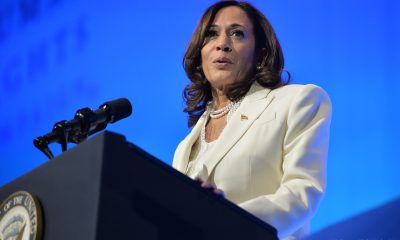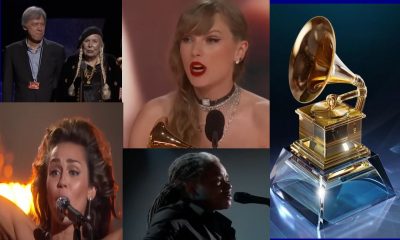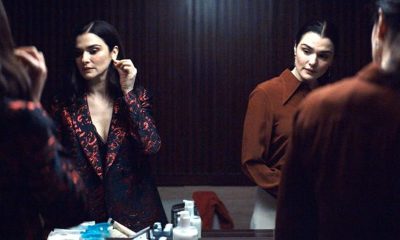Arts & Entertainment
Accompanying ‘Florence’
‘Big Bang’ star plays gay in new Meryl Streep vehicle
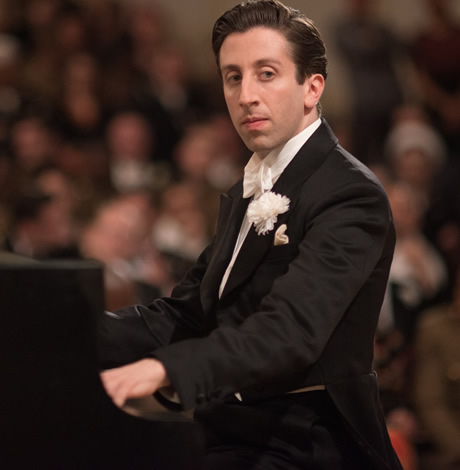
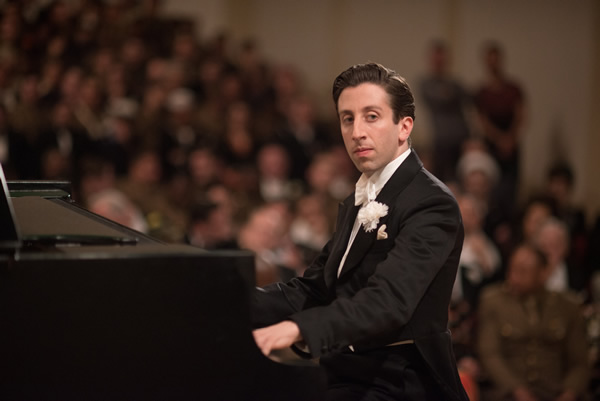
Simon Helberg as accompanist Cosmé McMoon in ‘Florence Foster Jenkins.’ (Photo courtesy Paramount Pictures)
Fans who only know Simon Helberg as the super nerd Howard Wolowitz on “The Big Bang Theory” will be surprised and delighted to see him in his latest role: Meryl Streep’s shyly flamboyant accompanist in the new movie “Florence Foster Jenkins,” opening Friday, Aug. 12 in wide release.
Madame Florence, played by Streep, was a wealthy New York socialite and patron of the arts. Although she was a classically trained pianist who played at the White House when she was a child, her claim to musical fame was an infamous 1944 Carnegie Hall performance that showcased her complete lack of singing ability.
Helberg plays Cosmé McMoon, Madame Florence’s long-suffering but supportive pianist. He started developing his character by zeroing in on the work of screenwriter Nicholas Martin.
“First and foremost is the script,” Helberg says. “He wrote these characters who are very vivid and very full. There were so many clues in the script. I took every word and direction as gospel.”
From there, Helberg turned to the historical record, discovering he was born in Mexico to Irish immigrants who later moved to San Antonio and New York.
“I went to research who he really was. There wasn’t a lot of information on him, but there were these little insights,” he says. “I thought he must have felt somewhat alien.”
As for McMoon being gay, everything pointed to it. McMoon was, after all, an accompanist. He was fascinated with muscle magazines and body-building competitions. He worked at a bathhouse and never married.
But Helberg decided to approach the character’s sexual orientation in a subtle manner, reflecting both the character and the period. McMoon starts out the movie “completely innocent.” But, as he starts to move about in the glittering social circles that Jenkins and her husband St. Clair Bayfield (Hugh Grant) inhabit, he becomes more aware of his sexuality. By the end of the movie, McMoon rushes backstage for the Carnegie Hall concert, explaining his lateness by breathlessly gushing, “I was attacked by lots of sailors.” As Helberg dryly notes, it’s not exactly clear what has happened, but “the light bulb has started to flicker.”
As for McMoon’s delightful physical mannerisms, they’re rooted in Helbing’s own training as a piano player: arms weighted to the floor and fingers dancing over the keys. Cosmé, Simon says, “has the posture that a classically trained pianist would be taught.”
Helberg, in fact, nearly became a professional pianist.
“I’m good,” he says. “I used to obsessively play and practice all the time in high school. But once I started acting, then I just started playing for fun. I threw away that career path. Because being an actor is so much easier than being a jazz pianist.”
“I kept playing for fun,” he says, “but never anything classical or opera. Then this came along. I really wanted to be in this movie and thought how great that I can play the piano. At least I’ll be able to put my hands in the right place and make it look real when a classically trained pianist plays the music. Maybe I’ll get to play a song or two.”
But things turned out slightly differently. Director Stephen Frears wanted a pianist who could really play Strauss and Mozart. Once he got the part, Helbing started a crash course in classical music. Then, once he got on set, Helberg started a crash course with Meryl Streep. Luckily, Helberg says, “I’m really good at making people sound worse.”
Streep and Helberg hey had a week and a half to rehearse before filming started.
“We had this great collaboration,” Helberg says. “We really had to go into this intimate and intense training. We had to work it and work it and work it. It was incredibly tough and satisfying to actually sit there and do it.”
Initially, Streep and Helberg assumed they would perform to pre-recorded tracks.
“I know Meryl always wanted to sing it live, but at first that didn’t seem possible,” the actor says. “We prerecorded at Abbey Road Studios, but once we did that, the producers said, ‘Well, they can really do it. Let’s just have them do it live. Screw that album.’”
Working with Streep, Helberg says, “was honestly a dream for me. She’s very aware of people and she’s very open and she’s grounded. She’s about making the best movie she can and it’s not about her. There’s something very effortless about it.”
Since McMoon becomes a confidante to both Madame Florence and her husband, Helberg also spent a lot of time working with Hugh Grant, whom he calls “hilariously self-deprecating and neurotic.”
“I thought that was my job but were battling for who was most neurotic. He was completely consumed with making the film the best it could be. I know he was also nervous about working with Meryl and even Meryl was nervous about being Meryl. That’s a lot of pressure.”
The scene, however, that was must challenging for the actor was McMoon’s delayed burst of laughter after he finally hears Madame Florence sing.
“It’s so hard to laugh that way when you’re having an uncontrollable fit of laughter.”
He asked Meryl Streep for advice, and she said, “Well try to cry, that always makes me laugh.” Helberg rejected that advice, fearing he’d actually cry.
He tried recording a couple of things on his phone, but finally realized, “I just had to surrender to it. Stephen had a conversation with me about how I saw that scene, about how I saw it being shot and how I saw it being cut together, and how I saw the elevator and how many people should be in it. He really was asking me questions that I felt less qualified to answer than he, but he really wanted to know what I thought. It was a tricky scene for everyone involved, but it did turn out nicely.”
Now that “Florence Foster Jenkins” is in theaters, Helberg is getting ready to start filming season 10 of “The Big Bang Theory.” The actor admits he doesn’t know a lot about what’s in store for Howard and his friend.
He says we’ll be seeing more of Christine Baranski, Laurie Metcalf and Judd Hirsch and meet Penny’s brother and mother.
“I literally have no idea.” he says. “They don’t tell us anything ever until we get the script the night before the table read. What I do know, based on my rudimentary knowledge of biology, is that he will be having a baby, because Bernadette is pregnant and I hear that’s how it works. Their baby will come in the first half of the season and they will be navigating that and figuring out who the bigger baby is, him or the baby.”
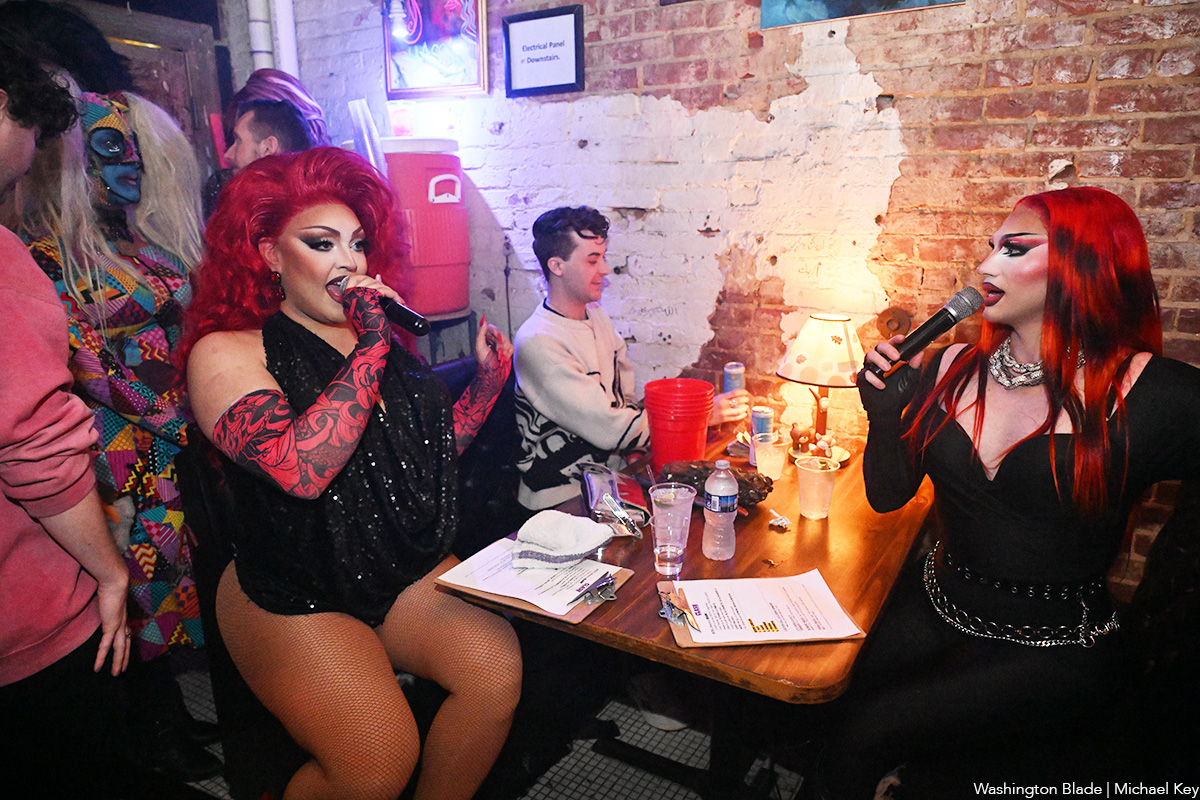
Crimsyn and Tatianna hosted the new weekly drag show Clash at Trade (1410 14th Street, N.W.) on Feb. 14, 2026. Performers included Aave, Crimsyn, Desiree Dik, and Tatianna.
(Washington Blade photos by Michael Key)
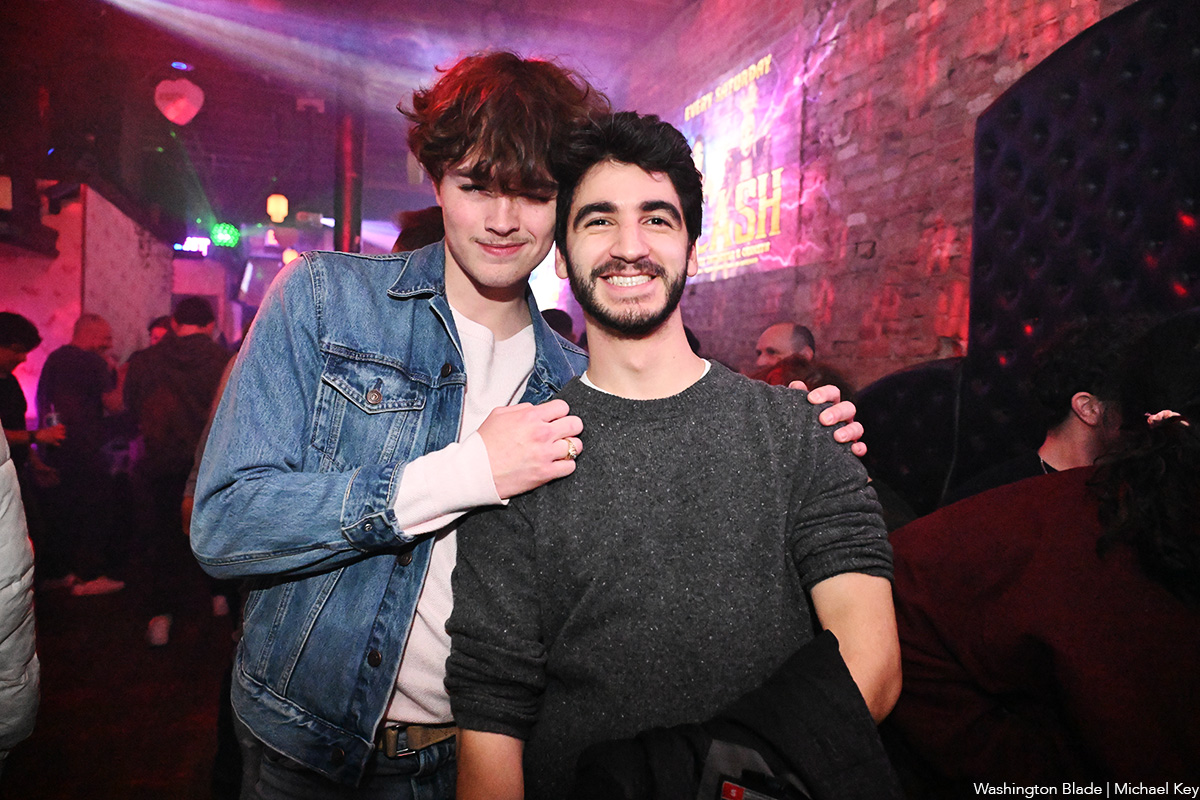
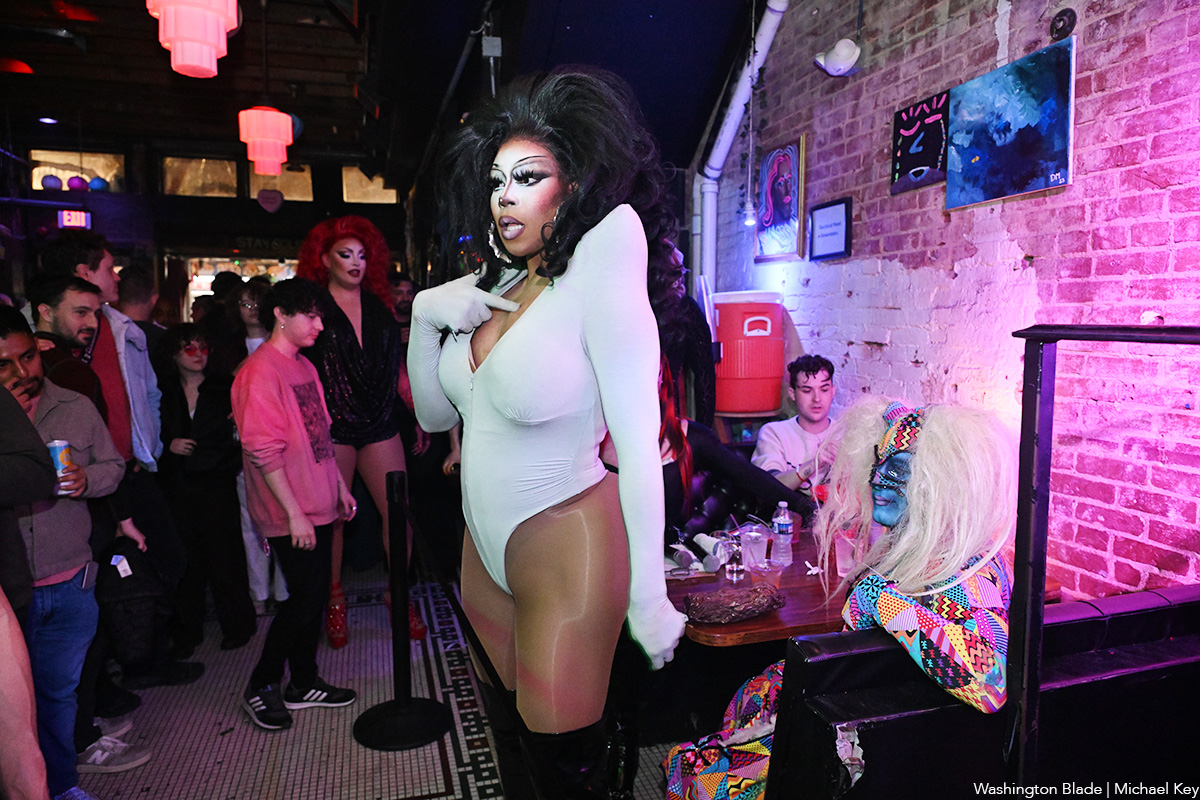
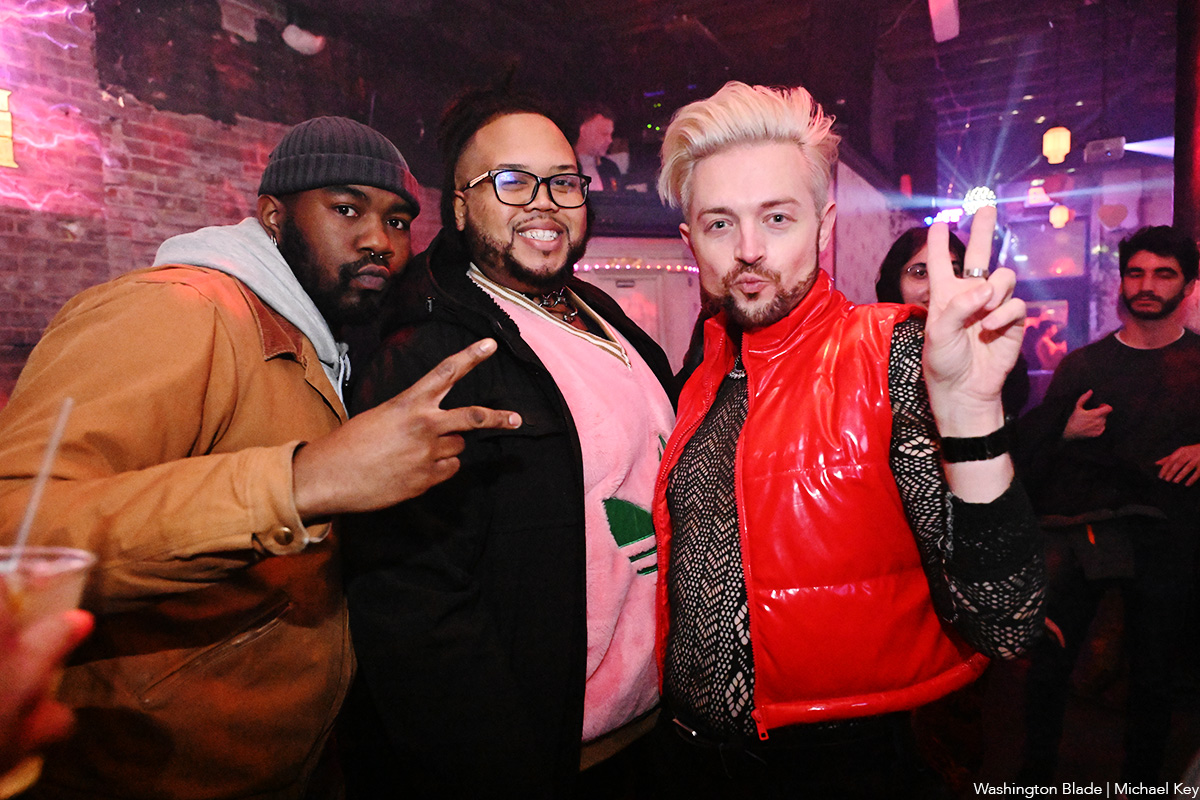
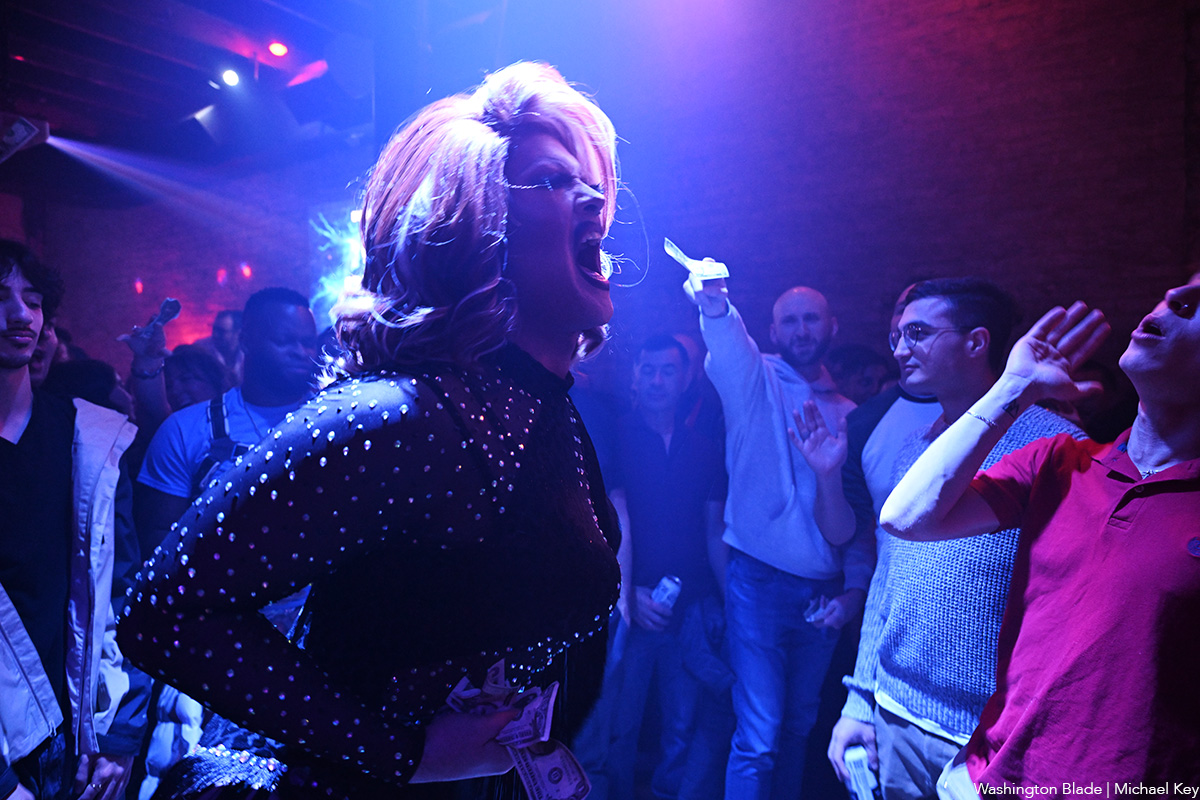
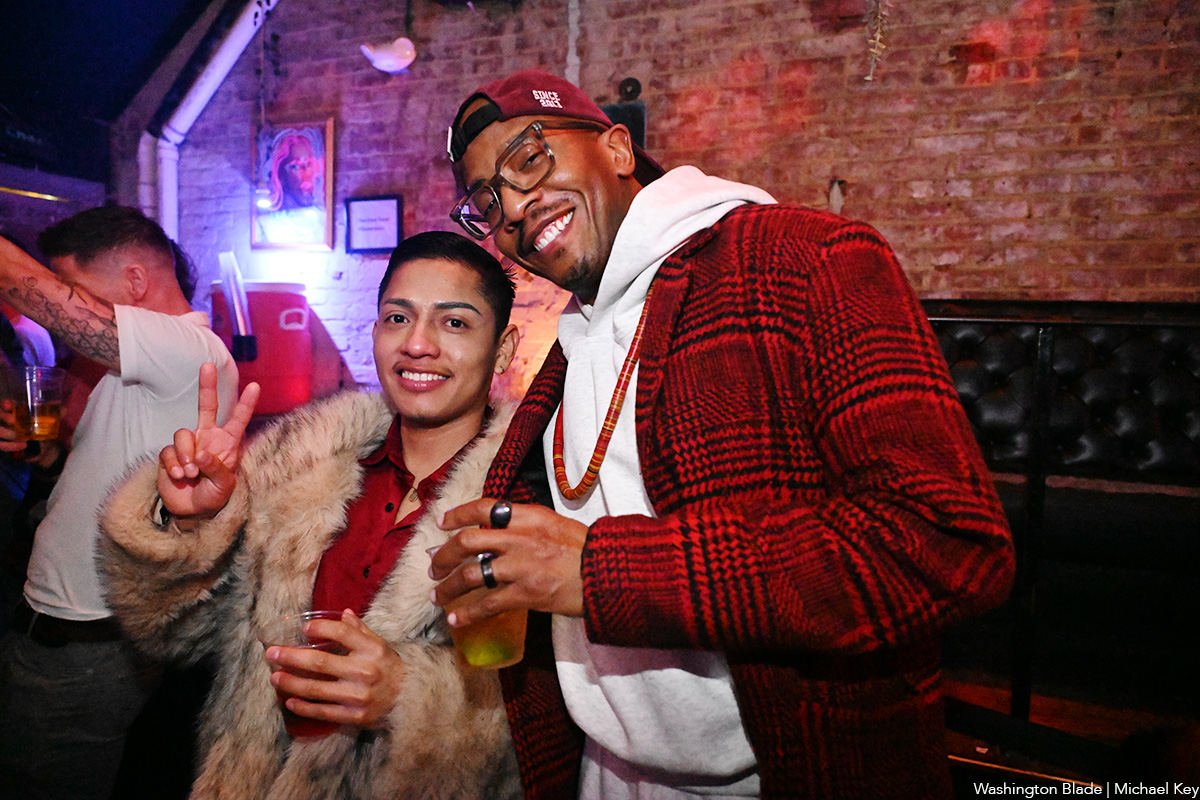
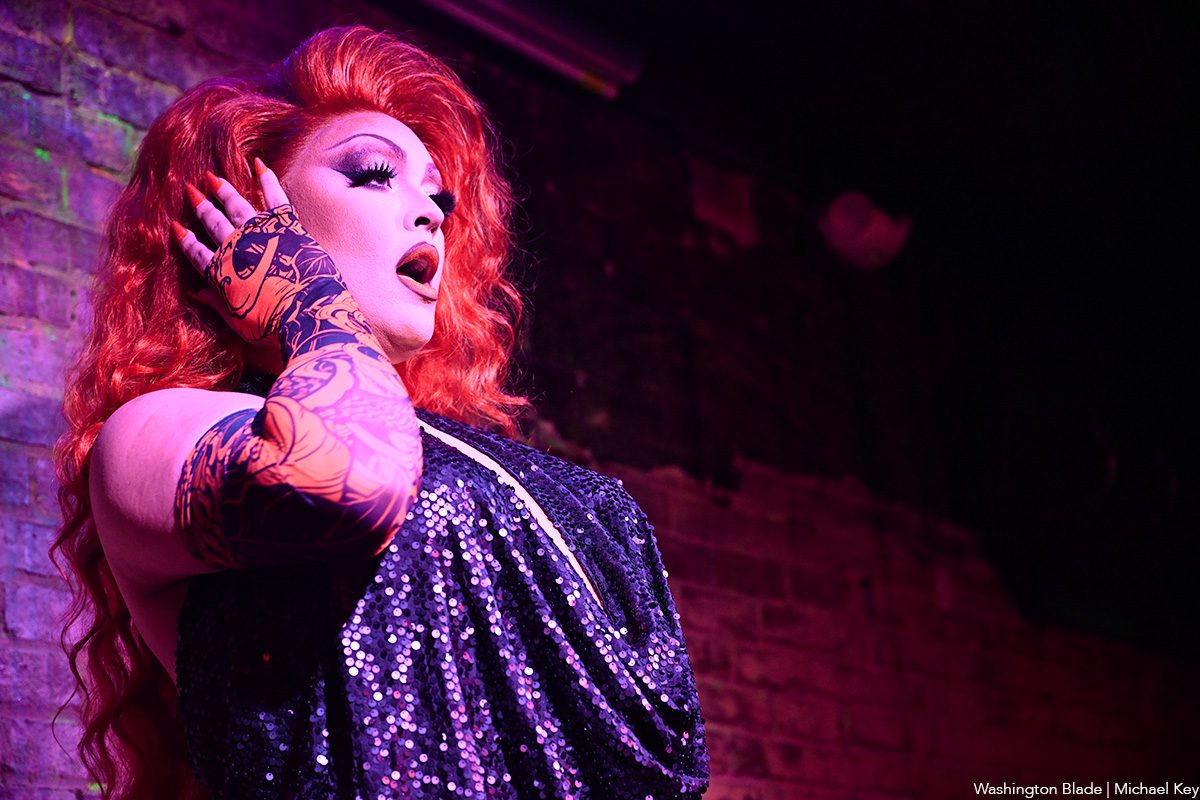
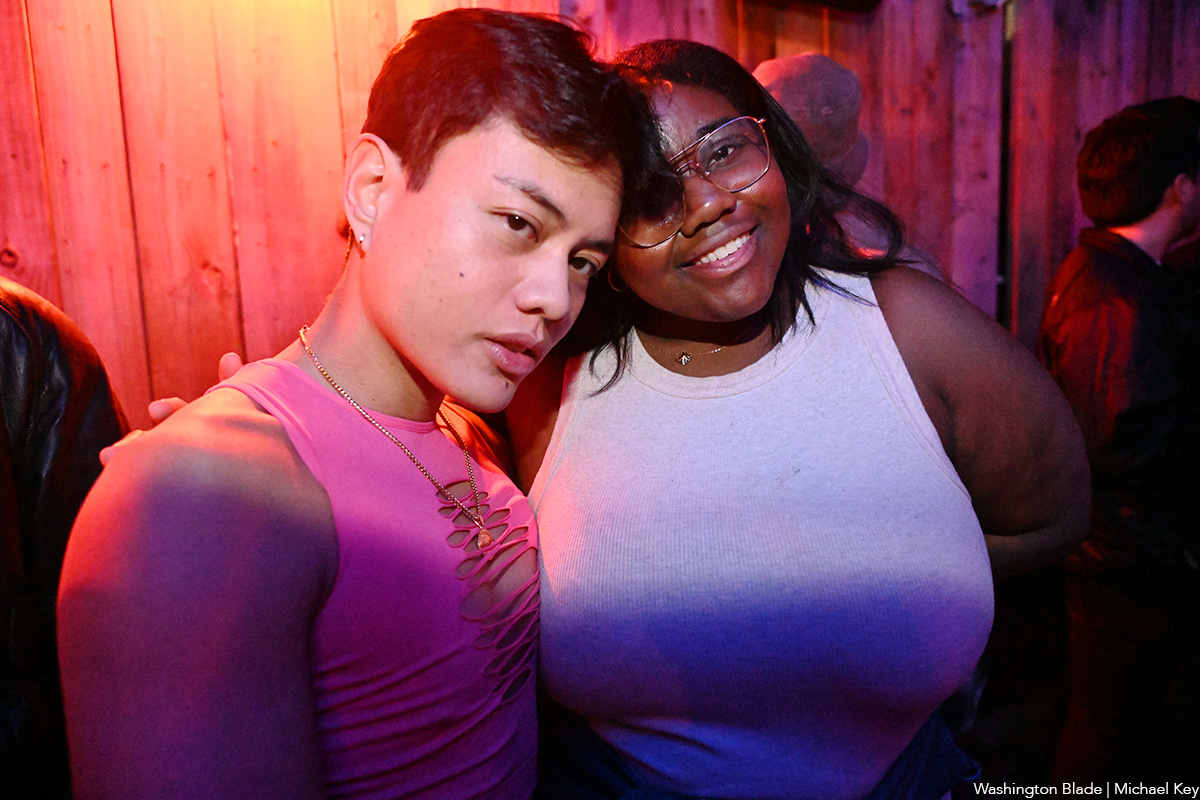
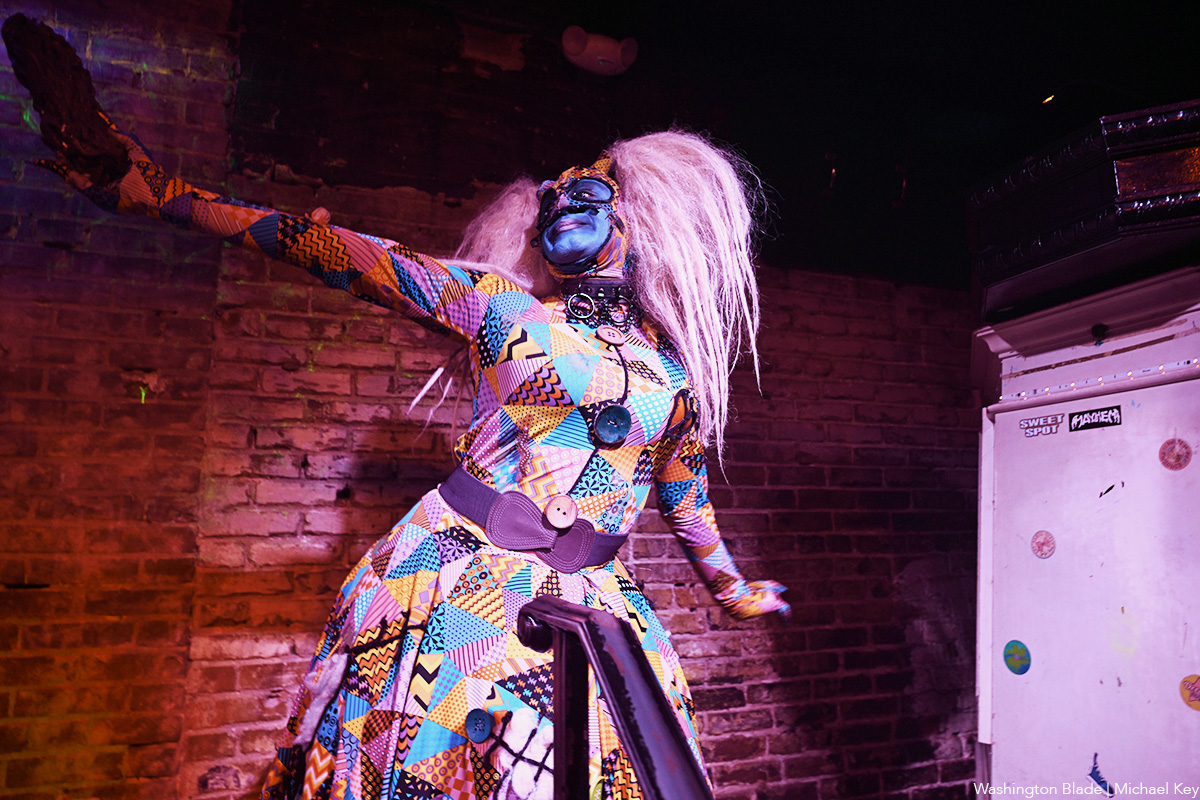
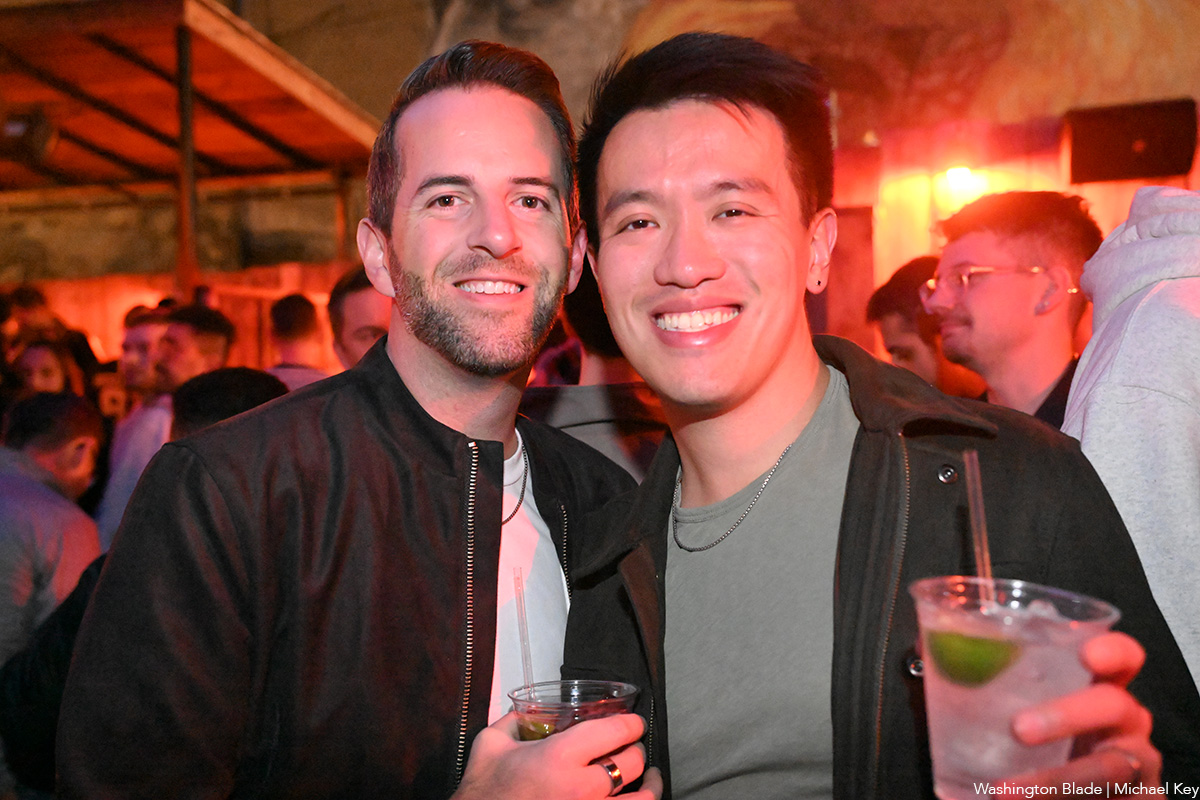
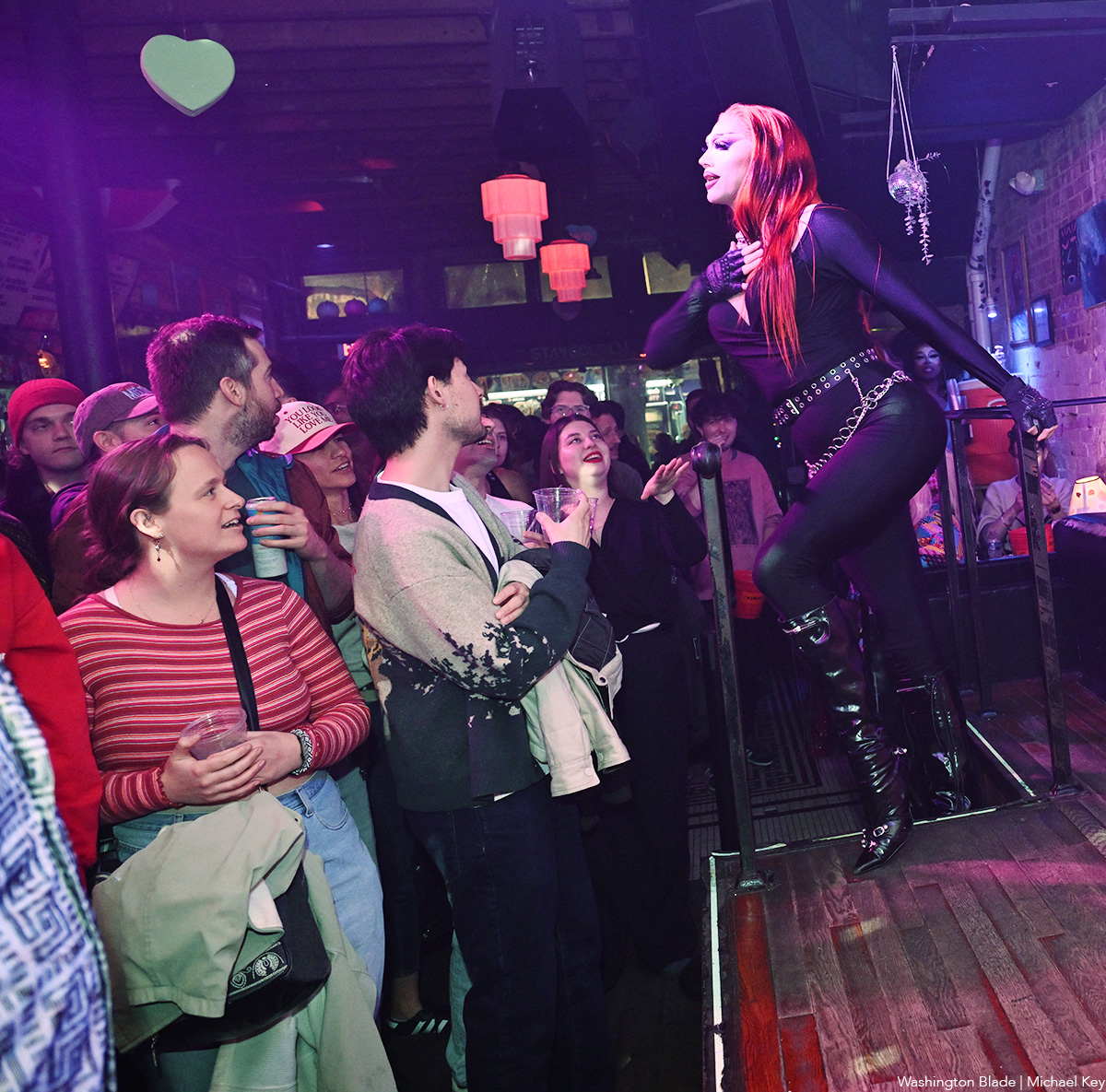
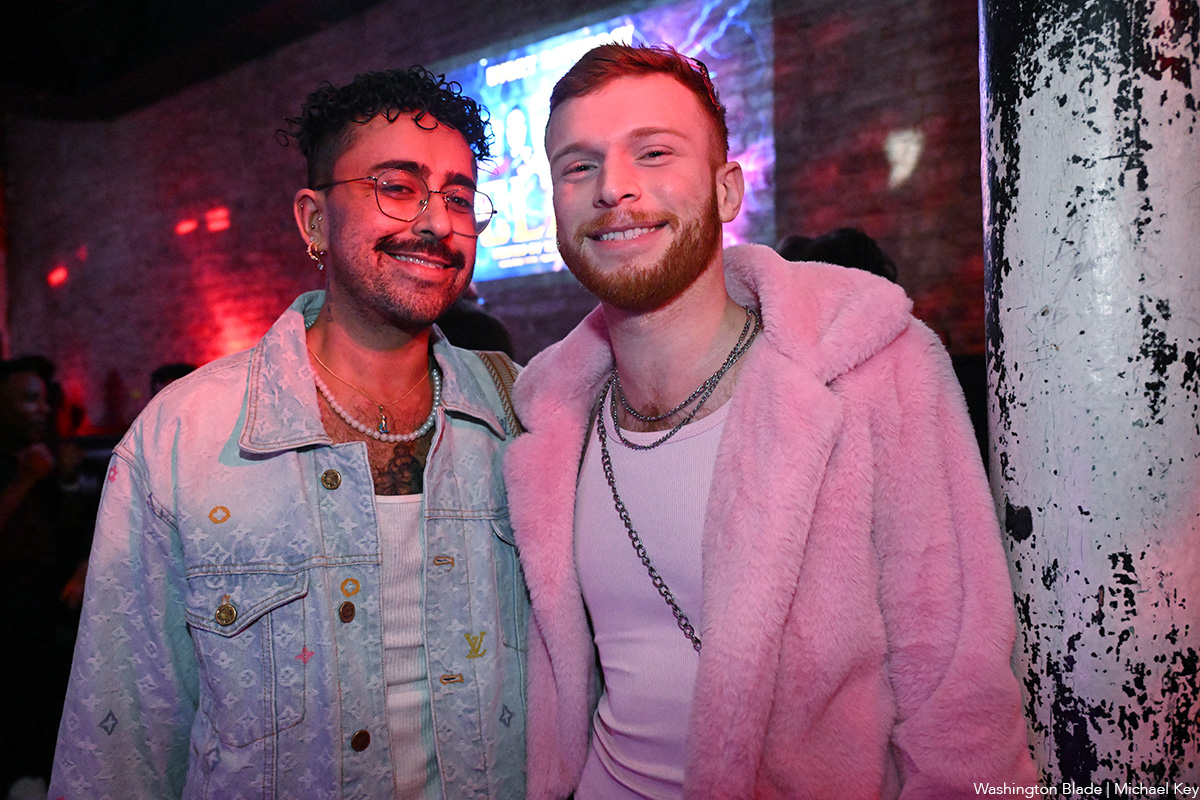
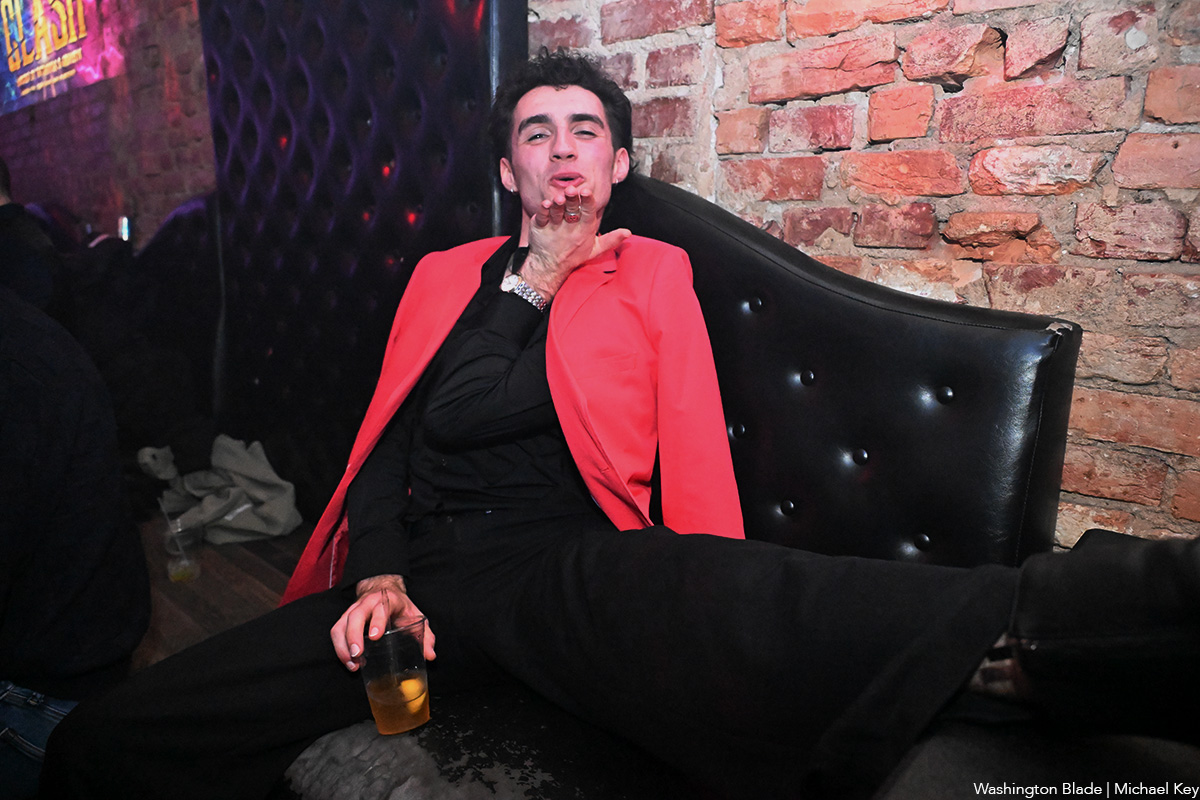
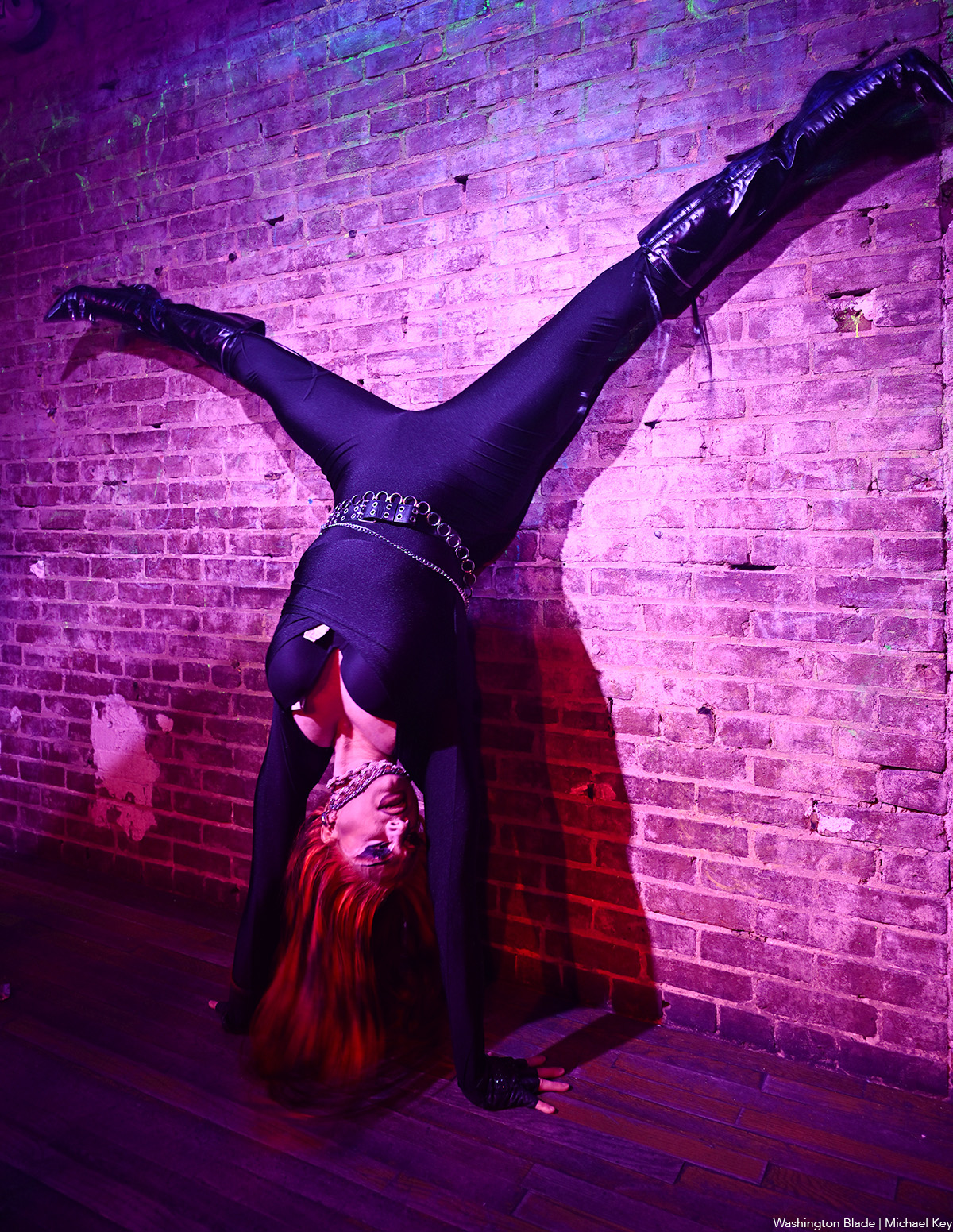
Theater
Magic is happening for Round House’s out stage manager
Carrie Edick talks long hours, intricacies of ‘Nothing Up My Sleeve’

‘Nothing Up My Sleeve’
Through March 15
Round House Theatre
4545 East-West Highway
Bethesda, Md. 20814
Tickets start at $50
Roundhousetheatre.org
Magic is happening for out stage manager Carrie Edick.
Working on Round House Theatre’s production of “Nothing Up My Sleeve,” Edick quickly learned the ways of magicians, their tricks, and all about the code of honor among those who are privy to their secrets.
The trick-filled, one-man show starring master illusionist Dendy and staged by celebrated director Aaron Posner, is part exciting magic act and part deeply personal journey. The new work promises “captivating storytelling, audience interaction, jaw-dropping tricks, and mind-bending surprises.”
Early in rehearsals, there was talk of signing a non-disclosure agreement (NDA) for production assistants. It didn’t happen, and it wasn’t necessary, explains Edick, 26. “By not having an NDA, Dendy shows a lot of trust in us, and that makes me want to keep the secrets even more.
“Magic is Dendy’s livelihood. He’s sharing a lot and trusting a lot; in return we do the best we can to support him and a large part of that includes keeping his secrets.”
As a production assistant (think assistant stage manager), Edick strives to make things move as smoothly as possible. While she acknowledges perfection is impossible and theater is about storytelling, her pursuit of exactness involves countless checklists and triple checks, again and again. Six day weeks and long hours are common. Stage managers are the first to arrive and last to leave.
This season has been a lot about learning, adds Edick. With “The Inheritance” at Round House (a 22-week long contract), she learned how to do a show in rep which meant changing from Part One to Part Two very quickly; “In Clay” at Signature Theatre introduced her to pottery; and now with “Nothing Up My Sleeve,” she’s undergoing a crash course in magic.
She compares her career to a never-ending education: “Stage managers possess a broad skillset and that makes us that much more malleable and ready to attack the next project. With some productions it hurts my heart a little bit to let it go, but usually I’m ready for something new.”
For Edick, theater is community. (Growing up in Maryland, she was a shy kid whose parents signed her up for theater classes.) Now that community is the DMV theater scene and she considers Round House her artistic home. It’s where she works in different capacities, and it’s the venue in which she and actor/playwright Olivia Luzquinos chose to be married in 2024.
Edick came out in middle school around the time of her bat mitzvah. It’s also around the same time she began stage managing. Throughout high school she was the resident stage manager for student productions, and also successfully participated in county and statewide stage management competitions which led to a scholarship at the University of Maryland, Baltimore County (UMBC) where she focused on technical theater studies.
Edick has always been clear about what she wants. At an early age she mapped out a theater trajectory. Her first professional gig was “Tuesdays with Morrie” at Theatre J in 2021. She’s worked consistently ever since.
Stage managing pays the bills but her resume also includes directing and intimacy choreography (a creative and technical process for creating physical and emotional intimacy on stage). She names Pulitzer Prize winning lesbian playwright Paula Vogel among her favorite artists, and places intimacy choreographing Vogel’s “How I learned to Drive” high on the artistic bucket list.
“To me that play is heightened art that has to do with a lot of triggering content that can be made very beautiful while being built to make you feel uncomfortable; it’s what I love about theater.”
For now, “Nothing Up My Sleeve” keeps Edick more than busy: “For one magic trick, we have to set up 100 needles.”
Ultimately, she says “For stage managers, the show should stay the same each night. What changes are audiences and the energy they bring.”

Friday, February 13
Center Aging Monthly Luncheon With Yoga will be at noon at the DC Center for the LGBT Community. Email Mac at [email protected] if you require ASL interpreter assistance, have any dietary restrictions, or questions about this event.
Go Gay DC will host “LGBTQ+ Community Happy Hour Meetup” at 7 p.m. at Freddie’s Beach Bar and Restaurant. This is a chance to relax, make new friends, and enjoy happy hour specials at this classic retro venue. Attendance is free and more details are available on Eventbrite.
Women in their Twenties and Thirties will be at 7 p.m. on Zoom. This is a social discussion group for queer women in the D.C. area. For more details, visit the group on Facebook.
Saturday, February 14
Go Gay DC will host “LGBTQ+ Community Brunch” at 11 a.m. at Freddie’s Beach Bar & Restaurant. This fun weekly event brings the DMV area LGBTQ community, including allies, together for delicious food and conversation. Attendance is free and more details are available on Eventbrite.
The DC Center for the LGBT Community will host a screening of “Love and Pride” at 1:30 p.m. This event is a joy-filled global streaming celebration honoring queer courage, Pride, and the power of love. It’s a bold celebration of courage and community — a fearless reminder of what we’ve overcome, how love is what makes us unstoppable, and how we have always turned fear into fierce. For more details, visit the Center’s website.
Sunday, February 15
LGBTQ+ Community Coffee and Conversation will be at 12 p.m. at As You Are. This event is for people looking to make more friends and meaningful connections in the LGBTQ community. Attendance is free and more details are available on Eventbrite.
Monday, February 16
Queer Book Club will be at 7:00p.m. on Zoom. This month’s read is “Faebound” by Saara El-Arifi. For more details, visit the DC Center’s website.
“Center Aging: Monday Coffee Klatch” will be at 10 a.m. on Zoom. This is a social hour for older LGBTQ+ adults. Guests are encouraged to bring a beverage of choice. For more information, contact Adam ([email protected]).
Tuesday, February 17
Center Bi+ Roundtable will be at 7 p.m. on Zoom. This is an opportunity for people to gather in order to discuss issues related to bisexuality or as Bi individuals in a private setting.Visit Facebook or Meetup for more information.
Wednesday, February 18
Job Club will be at 6 p.m. on Zoom upon request. This is a weekly job support program to help job entrants and seekers, including the long-term unemployed, improve self-confidence, motivation, resilience and productivity for effective job searches and networking — allowing participants to move away from being merely “applicants” toward being “candidates.” For more information, email [email protected] or visit thedccenter.org/careers.
Thursday, February 19
The DC Center’s Fresh Produce Program will be held all day at the DC Center for the LGBT Community. To be fair with who is receiving boxes, the program is moving to a lottery system. People will be informed on Wednesday at 5 p.m. if they are picked to receive a produce box. No proof of residency or income is required. For more information, email [email protected] or call 202-682-2245.
Virtual Yoga Class will be at 7 p.m. on Zoom. This free weekly class is a combination of yoga, breath work and meditation that allows LGBTQ+ community members to continue their healing journey with somatic and mindfulness practices. For more details, visit the DC Center’s website.

